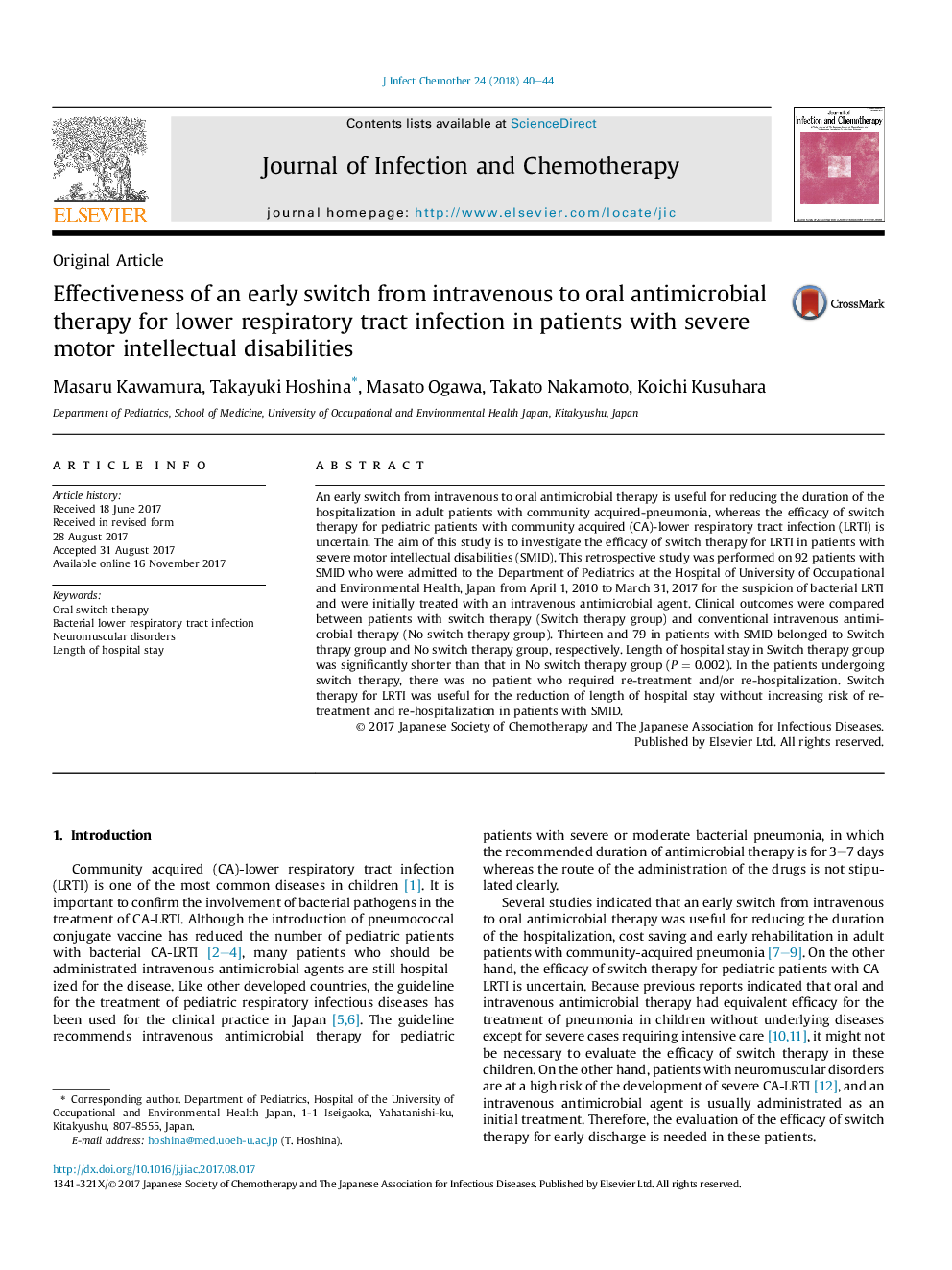| Article ID | Journal | Published Year | Pages | File Type |
|---|---|---|---|---|
| 8740754 | Journal of Infection and Chemotherapy | 2018 | 5 Pages |
Abstract
An early switch from intravenous to oral antimicrobial therapy is useful for reducing the duration of the hospitalization in adult patients with community acquired-pneumonia, whereas the efficacy of switch therapy for pediatric patients with community acquired (CA)-lower respiratory tract infection (LRTI) is uncertain. The aim of this study is to investigate the efficacy of switch therapy for LRTI in patients with severe motor intellectual disabilities (SMID). This retrospective study was performed on 92 patients with SMID who were admitted to the Department of Pediatrics at the Hospital of University of Occupational and Environmental Health, Japan from April 1, 2010 to March 31, 2017 for the suspicion of bacterial LRTI and were initially treated with an intravenous antimicrobial agent. Clinical outcomes were compared between patients with switch therapy (Switch therapy group) and conventional intravenous antimicrobial therapy (No switch therapy group). Thirteen and 79 in patients with SMID belonged to Switch thrapy group and No switch therapy group, respectively. Length of hospital stay in Switch therapy group was significantly shorter than that in No switch therapy group (PÂ =Â 0.002). In the patients undergoing switch therapy, there was no patient who required re-treatment and/or re-hospitalization. Switch therapy for LRTI was useful for the reduction of length of hospital stay without increasing risk of re-treatment and re-hospitalization in patients with SMID.
Related Topics
Life Sciences
Immunology and Microbiology
Applied Microbiology and Biotechnology
Authors
Masaru Kawamura, Takayuki Hoshina, Masato Ogawa, Takato Nakamoto, Koichi Kusuhara,
